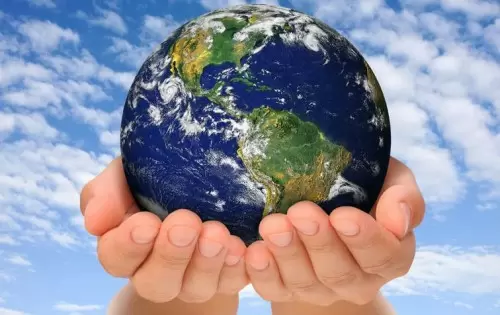Live in Wisconsin and you know that the state's green energy and sustainability efforts have seen their better days. But you also know that things here are ready to do an about-face.
In 2000, Wisconsin became the first state in the Midwest to set standards regarding its use of electricity from renewable sources. It was a lofty goal - one made long before other states began implementing initiatives.
But then something happened…or didn't happen. While other states in the years that followed increased their commitment to clean energy, Wisconsin fell off the map, doing nothing while other states upped their renewable energy game. According to the U.S. Department of Energy, Wisconsin had the second lowest energy standard (among those states with energy standards) by 2017.
The backslide happened, in part, due to the rollback of environmental regulations during Governor Scott Walker's term in office. From relaxed environmental laws regarding mining to more lax zoning laws regarding the protection of the state's shorelines, Wisconsin's pro-business climate resulted in a decidedly anti-environment climate.
But a 2018 defeat in the governor's race has brought new hope to this state's environmental groups. Governor Tony Evers vows to make environmental efforts a priority once again, addressing major issues such as a decrease in wetlands and groundwater, climate change, the use of public lands, and greenhouse gas pollution.
Significant and aggressive changes to environmental regulations and policies must be made to ensure that Wisconsin's natural resources are protected and preserved for both future and current generations. Earn a degree in environmental science and you can be part of this state's brighter, greener future.
What Can I Do with an Environmental Science Degree in Wisconsin
Environmental efforts in Wisconsin are a collaborative affair that require public agencies, private businesses, and nonprofits working toward a common goal. As an environmental scientist, your scientific inquiries will be used to inform, educate, and drive positive change, whether in the public, private, or nonprofit sector.
The Wisconsin Department of Natural Resources' Environmental Management Division is the state leader, overseeing programs in air management, water quality, remediation and redevelopment, and more.
Nonprofit advocacy groups here include Wisconsin Environment, the citizen-based environmental advocacy project of Environment America; Clean Wisconsin, whose major programs include protecting Wisconsin's water, addressing climate change, and creating a clean energy future; and the Wisconsin Environmental Initiative, which brings together business, government, and citizen groups to improve the state's environment.
Among scientists in the physical, life and social sciences, environmental scientists and specialists earned a competitive salary, according to 2020 BLS statistics. These professionals earned an annual, average salary of $64,850 during this time. Geoscientists were the top earners in the field with an average salary of $79,790, while hydrologists earned a similar salary as environmental scientists, at $70,800.
2020 US Bureau of Labor Statistics salary figures and job growth projections for Environmental Scientists and Specialists, Geoscientists, Except Hydrologists and Geographers, and Hydrologists reflect state data not school-specific information. Conditions in your area may vary. Data accessed September 2021.
Master's in Environmental Science in Wisconsin
A master's degree is your opportunity to advance your knowledge in environmental science, specialize in a specific area, land a leadership position, and increase your earning potential.
The University of Wisconsin-Madison, the largest public institution in Wisconsin, offers an MS in Environment and Resources, which is located in Nelson Institute of Environmental Studies, home to no less than four interdisciplinary research centers. Additional master's degree options here include agricultural and applied economics, conservation biology and sustainable development, environmental engineering, environmental monitoring, forestry and wildlife ecology, water resources management, and geography/cartography.
Also part of the UW system, the University of Wisconsin -Stevens Point offers an MS in Natural Resources, while the University of Wisconsin - Green Bay offers an MS in Environmental Science and Policy.
Among private universities, Carroll Universityoffers an MS in Environmental Science and an MS in Freshwater Science, both of which feature outstanding fieldwork opportunities at the university's 75-acre field station, home to wetlands, cold-water springs, the Prairie Springs Environmental Education Center, and the Paul Fleckenstein Research Laboratory.
Bachelor's in Environmental Science in Wisconsin
A bachelor's degree in environmental science is where you'll achieve the educational foundation needed to become a valued member of a private environmental consulting firm, advocacy group, or state agency.
The largest University of Wisconsin campus, UW-Madison, offers a BS in Environmental Sciences. UW - Stout offers a BS in Environmental Science, which includes your choice of aquatic biology, environmental health, or natural resource conservation specialization, while UW - River Falls also offers a BS in Environmental Science that includes options to specialize, exciting field study at the university's on-campus trout stream and campus farms, and a superb internship program.
Online Environmental Science Degree Options from Schools in Wisconsin
Some of the most important learning takes place at a distance, thanks to a host of respected colleges and universities offering online degrees. Aimed at working professionals and those with geographical limitations, online degrees offer flexible, convenient study without the classroom commitment.
In Wisconsin, online degrees in environmental science include the University of Wisconsin's BS in Sustainable Management and Master of Science in Sustainable Management, both of which are offered fully online and taught by the university's distinguished faculty at each of the university's five campuses.







